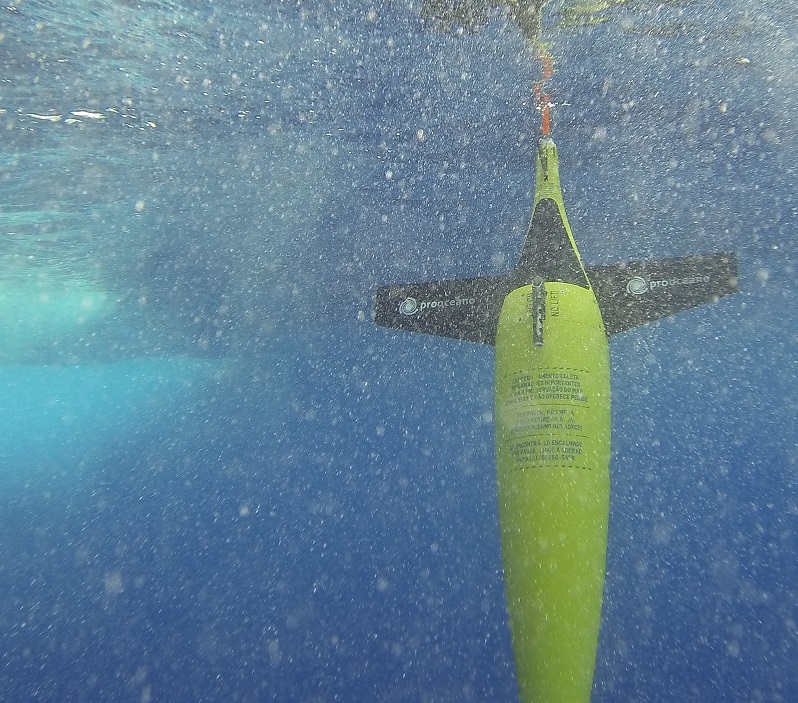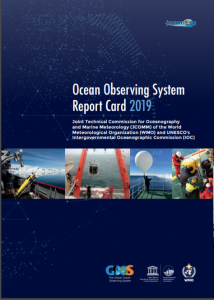JCOMMOPS highlights the need for sustained ocean monitoring
- September 5, 2019
- Category: Flash info

Every year, the WMO-IOC Joint Centre for Oceanography and Marine Meteorology in situ Observations Programme Support (JCOMMOPS) issues an Ocean observing system report card. In 2019, JCOMMOPS’ report card issues a call for action to increase contributions towards the ocean observing system and enhance collaborative efforts in order to ensure adequate measurements of the world’s oceans in the future.
Ocean Observing System Report Card 2019
Sustained ocean observing networks are a fundamental part of our lives. They provide critical data for weather forecasts, contribute to safety during extreme weather events, and provide crucial baseline information for climate studies, making it possible to track climate change indicators – such as ocean acidification. They also nourish an evidence-based approach to understanding and protecting marine ecosystems. As reported in the JCOMMOPS Report Card 2019 86 countries are involved in ocean observations, 170 satellites are mobilized to monitor the global ocean and atmosphere, and close to 9,000 in-situ platforms sample the oceans globally. While many in-situ ocean observation networks are close to maturity, the report card outlines some of the challenges the international community faces in the coming years:
- to fulfill observation gaps in the Arctic and Antarctic Ocean,
- to measure biology and biogeochemistry components of the ocean,
- to monitor CO2 concentrations
- to expand our ocean monitoring capabilities via innovations in computing, sensors and robotics.
Bright future for ocean observing networks
With the ocean economy forecasted to represent 3 trillion USD by 2030 (Source OECD 2016), understanding the ocean and predicting how it is changing will surely be international priorities. Furthermore, the United Nations has decreed 2021-2030 as the Decade of Ocean Science for Sustainable Development, ensuring the public spotlight will focus on the ocean’s long-term health and the mitigating the impact of human actions.
CLS, partner of the international ocean observation community
CLS, a satellite operator and partner of the ocean sciences community for more than 30 years, is ready to accompany the international ocean observation community as it expands ocean monitoring capabilities. CLS provides a range of airtime and value-added processing solutions to obtain remote, high frequency ocean observations from around the globe and contributes to major international oceanography programs. Unique Argos service provider, world-renowned certified Iridium VAR, and shareholder for Kinéis, an IoT/satellite hybrid solution, CLS offers an unparalleled range of services for the future of ocean observation networks, topped by excellent support.
In addition, CLS is breaking new ground in ocean observations by combining satellite telemetry expertise, in-situ measurements, and cross calibration/validation with satellite measurements in various European projects.
CLS services for in-situ observation networks include:
- Argos satellite services & products
- Iridium airtime & hardware
- Automatic Weather Stations
- TRUSTED: High Resolution SST SVP-B buoys for DBCP
- Data hosting for Argo floats and other oceanographic platforms
- Argos back-up tracking for oceanographic equipment
- Calibration/Validation of satellite & in-situ measurements
- Buoy monitoring dashboard
JCOMMOPS, ocean observation coordinator since 2001
The WMO-IOC Joint Technical Commission for Oceanography and Marine Meteorology in situ Observations Programme Support Centre (JCOMMOPS) plays an important role in international ocean observations. Based in Brest, France, JCOMMOPS provides essential data and tools, as well as a centralized information and technical support facility, required for coordinating and integrating many of the world’s operational ocean observing networks, including the DBCP, OceanSITEs, SOT, GO-SHIP, Argo, and Ocean Gliders.
Thank you, JCOMMOPS, for your hard work since 2001 to monitor the state of ocean observing networks and to highlight the need for expanding ocean monitoring in the years to come.
Learn more about the UN’s Ocean Sciences Decade, 2021-2030:

